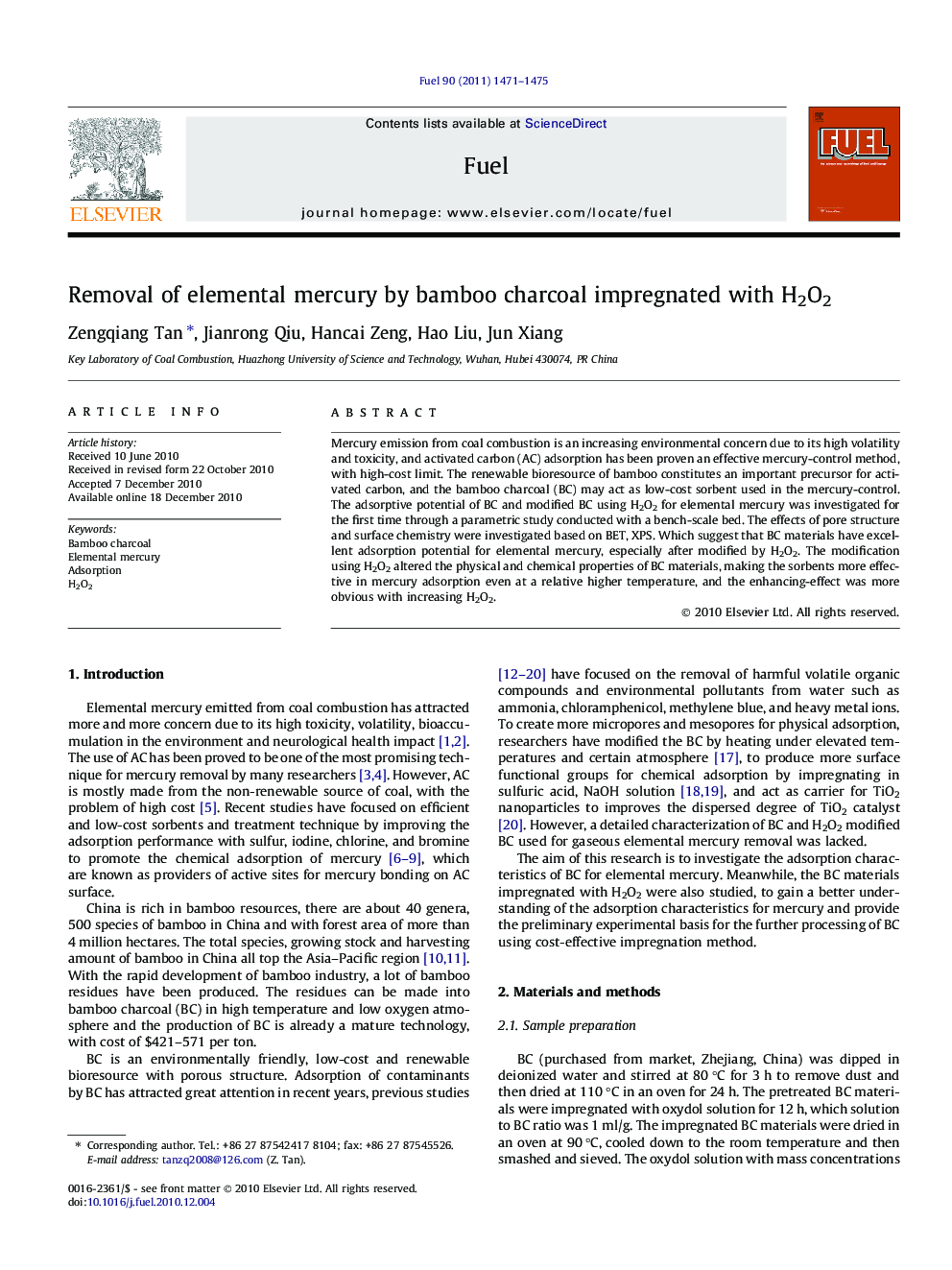| Article ID | Journal | Published Year | Pages | File Type |
|---|---|---|---|---|
| 10272981 | Fuel | 2011 | 5 Pages |
Abstract
Mercury emission from coal combustion is an increasing environmental concern due to its high volatility and toxicity, and activated carbon (AC) adsorption has been proven an effective mercury-control method, with high-cost limit. The renewable bioresource of bamboo constitutes an important precursor for activated carbon, and the bamboo charcoal (BC) may act as low-cost sorbent used in the mercury-control. The adsorptive potential of BC and modified BC using H2O2 for elemental mercury was investigated for the first time through a parametric study conducted with a bench-scale bed. The effects of pore structure and surface chemistry were investigated based on BET, XPS. Which suggest that BC materials have excellent adsorption potential for elemental mercury, especially after modified by H2O2. The modification using H2O2 altered the physical and chemical properties of BC materials, making the sorbents more effective in mercury adsorption even at a relative higher temperature, and the enhancing-effect was more obvious with increasing H2O2.
Related Topics
Physical Sciences and Engineering
Chemical Engineering
Chemical Engineering (General)
Authors
Zengqiang Tan, Jianrong Qiu, Hancai Zeng, Hao Liu, Jun Xiang,
